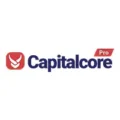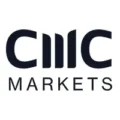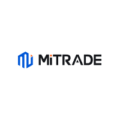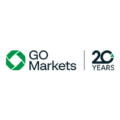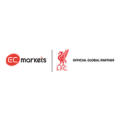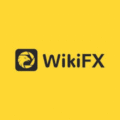Forex trading has become one of the most widely followed financial markets worldwide, drawing in millions of traders. With this surge in popularity, thousands of online forex brokers have entered the market — but not all are trustworthy or dependable. To trade safely and efficiently, it’s essential to choose from the Top ECN forex brokers that are fully regulated and offer competitive trading conditions.

Why Do You Need the Top ECN Forex Brokers?
Forex trading can be a highly rewarding investment if approached with the right strategy and a trusted forex broker. Choosing from the top ECN forex brokers ensures you get access to reliable trading platforms, competitive pricing, and regulated services.
With numerous forex brokers offering different features and services, it’s essential to understand their offerings before making a decision. achieve consistent profits.
Criteria for Selecting the Top ECN Forex Brokers in the World
Before signing up with an online forex broker, thorough research is essential. While word-of-mouth recommendations can be helpful, relying solely on others’ opinions isn’t enough. Instead, take the time to read forex broker reviews and analyze trader feedback to make an informed decision.
Importance of Safety
One of the most crucial factors to consider when selecting a ECN forex broker is security. A reliable broker prioritizes the safety of your funds and personal data, ensuring a secure trading environment.
A trusted forex broker takes extensive measures to protect clients, including:
✅ Regulatory Compliance – Operates under top-tier financial authorities.
✅ Fund Security – Uses segregated accounts to keep client funds separate from company funds.
✅ Advanced Encryption – Implements SSL and two-factor authentication (2FA) to prevent fraud.
✅ Trade Verification – Requires authentication for transactions to prevent unauthorized access.
By choosing a top-tier regulated forex broker, traders can minimize risk and focus on successful trading with peace of mind.

Data Protection & Cybersecurity
A top-tier forex broker implements advanced security measures to safeguard customer information from hackers and unauthorized access. These include:
- Encryption protocols (SSL, TLS) to secure transactions and data.
- Two-factor authentication (2FA) to prevent unauthorized logins.
- Strict database security to prevent third-party access.
A reputable broker ensures that only authorized users can access trading accounts, minimizing the risk of fraud or data breaches.
Use of Advanced Technology & IT Infrastructure
Leading forex brokers continuously upgrade their trading platforms and security systems to ensure stability and protect client funds. This includes:
- Real-time monitoring to detect suspicious activities.
- Automatic backups to prevent data loss in case of server crashes.
- DDoS protection to prevent cyberattacks.
A broker committed to technology ensures a seamless and secure trading experience for its clients.
Trade Authentication & Account Security
To enhance security, the best forex brokers implement trade authentication measures, such as:
- Verification before trade execution to prevent unauthorized transactions.
- Login protection that restricts access from unrecognized devices.
- Instant alerts to notify traders of unusual activity.
If a broker does not offer these security features, it might not be the safest choice for your funds.
In such times, the first thing that the top 10 forex brokers do is to make sure that all of their clients’ accounts remain safe, and they ensure this by making use of the latest technology as well as proper backups. So, you should look for a broker who takes such measures as part of their standard security protocols. Otherwise, you cannot be guaranteed anything at all.
Regulations
While the forex market itself is decentralized and lacks a single global regulatory authority, regional regulators play a vital role in maintaining market integrity and protecting traders. These regulatory bodies ensure that brokers operate transparently, treat clients fairly, and follow strict financial standards.
Though regulatory frameworks vary across countries, there is a significant level of consistency in the core principles they uphold—such as client fund protection, transparent pricing, and risk disclosure. As a result, regulation serves as a crucial benchmark when evaluating the reliability of a forex broker.
- Australian Securities and Investments Commission (ASIC) – Australia: The Australian Securities and Investments Commission (ASIC) is an independent Commonwealth statutory authority. It has the responsibility for enforcing the Corporations Act 2001, which regulates corporations, financial products, and services in Australia. This includes company registration, regulation of financial market infrastructure, the payment system including the safety and soundness of financial institutions, superannuation regulation, and consumer protection in relation to financial products. ASIC was established on 1 July 1998 by the “Australian Securities and Investments Commission Act 1998” to administer the Corporations Act 2001.
- Financial Conduct Authority (FCA)- UK: The FCA was created to regulate all forms of financial activity within the United Kingdom, including Forex activities. Further, it has been cited as playing a role in encouraging foreign exchange companies to move their businesses into London after many left or were forced out of other countries due to stricter regulations on Forex brokers. The FCA also regulates any actions that may affect the stability of Britain’s financial system, both directly by holding shares in troubled institutions and through strict rules regarding insurance against failure. This means that it takes an interest in many large organizations involved in banking, insurance, and other finance-related activities.
- Commodity Futures Trading Commission (CFTC) and National Futures Association (NFA)- USA: The CFTC was created in 1975 with a mandate to regulate off-exchange commodities transactions, including forex. Moreover, it aims to protect market users and the public from fraud, manipulation, abusive practices, and systemic risk related to derivatives traded outside exchanges. Since 2000 it has applied its rules to any firm offering retail forex products in the United States either directly or indirectly through an affiliate. In 2008 Congress approved legislation that brought certain aspects of the regulation of retail foreign exchange dealers under US Treasury supervision. Currently, the National Futures Association(NFA) is the primary regulator of Forex activities in the United States, but there are some other regulatory bodies that also offer licenses to companies that are regulated by them.
- Monetary Authority of Singapore (MAS)- Singapore: Currently, the Monetary Authority of Singapore (MAS) is the main regulator of Forex trading in Singapore, which is also one of the top-tier regulators. So, if you find any broker that is regulated by MAS, you can keep that in the list of the top 10 best forex brokers in the world.
Apart from these, there are some other regulators you may keep in mind while researching on top 10 forex trading sites. They are Cyprus Securities and Exchange Commission (CySec), Financial Market Authority (Austria), Dubai Financial Service Authority (DFSA), and more.
When it comes to forex brokers, we always want to know that they are regulated. When they are not, it becomes a problem because this lack of regulations opens up doors for fraudulent operations.
Before you sign up with a broker, always make sure that they are appropriately regulated. When you check the bottom of the website for any broker, you will find a license number, if they are genuine.
If you do not see it, ask them for it or avoid them because that is a red flag that they may not be who they say they are.
If they have the number, just copy it and check for their name on the website of the regulator that they claim oversees them. If you do not find it, you should know that they are lying. Some of the most well-known regulators in the world are:
- ASIC – Australian Securities and Investments Commission
- BaFIN – The Bundesanstalt für Finanzdienstleistungsaufsicht (Germany)
- CFTC – Commodities and Futures Trading Commission (United States)
- CySec – Cyprus Securities and Exchange Commission
- FCA – Financial Conduct Authority (United Kingdom)
- FFMS – Federal Financial Markets Service
- FINMA – Swiss Financial Market Supervisory Authority
- FMA – Financial Market Authority (Austria)
- FSA – Financial Services Agency
- FSB – Financial Services Board (South Africa)
- BVI – Financial Services Commission
- FSC – Financial Services Commission ( Mauritius )
- IFSC – International Financial Services Commission
- FSP NZ – New Zealand Financial Service Provider
- ISA – Israel Securities Authority
- MFSA – Malta Financial Services Authority
- SEBI – Securities and Exchange Board of India
- VFSC – Vanuatu Financial Services Commission
- UAE – Abu Dhabi Central Bank
Customer Reviews
Nowadays, with the availability of the internet, you can easily find the users of a certain broker. You may find them on social media community pages, forex-related forums, and some successful traders might have their own blogs. So, when choosing a forex trading broker, make sure you check out the authentic reviews from the real users. Nevertheless, this will give you a better idea about the brokers you are going to choose.
This is a big part of something that we call ‘social proof’ in the world of digital marketing. The word of someone who has used service is worth more than an advert. We read through reviews left by customers to compile an acceptable top 10 forex brokers in the world list.
Reviews help with:
- Providing a cautionary step before you take any action
- Giving you social proof
- Assuring you of credibility
- Confirming the reliability of a company
We read as many of them as possible to get a clear picture of a company.

Forex Broker Ratings
This is something we do mathematically. Calculating points is not an easy feat. We base it on so many things. Among them, one is forex education. To understand what it’s like to come up with a rating system, you first need to know what’s important.
When picking the top 10 forex brokers in the world, there is a criterion. The criterion helps us categorize features, services, and versatility.
Trading Costs, Commissions, and Spreads
Trading costs and spreads impact every trader, whether beginner or experienced. Lower trading costs generally lead to higher long-term profitability. In forex trading, costs mainly consist of brokerage fees and spreads, with the spread being the bid-ask difference set by brokers.
In addition to spreads, traders must pay service fees when opening positions through a broker or trading platform. While this may seem like an extra cost, it’s a fundamental expense required for trading and aiming for long-term gains.
For new traders, estimating spreads before trading can be challenging. Even experienced traders may struggle unless they have deep market knowledge. However, brokers should provide a clear breakdown of spreads and fees. Ignoring these costs can be a costly mistake since all traders operate within the same market conditions.
Some brokers may take advantage of traders by being unclear about their fees. That’s why it’s crucial to ensure commissions and spreads are at or below industry standards. Transparency in trading costs is key to making informed decisions and maximizing profitability.
Account Types
One of the first questions new forex traders ask is, “What types of forex accounts are available?” While brokers offer a variety of account options, the two primary types are demo accounts and standard accounts.
Your choice of account impacts several factors, including how you analyze market prices and trends, the number of trades you can execute per month, and the overall trading volume allowed within a given period. Selecting the right account type is essential for aligning your trading strategy with your experience level and goals.
Forex Demo Account
A forex demo account is one of the most valuable tools available to beginners in the trading world. Unlike a margin account, which usually requires a larger initial deposit and often includes promotional bonuses, a demo account offers a risk-free environment with no need for identity verification.
If your broker offers both account types, opening a demo account first is highly recommended. It allows you to familiarize yourself with the platform, test strategies, and understand market movements before committing real capital.
One key feature of demo accounts is that they do not allow for negative balances. This means you can never lose more than what’s in your account, making it a stress-free environment to learn. While this differs from real trading conditions, it helps new traders build confidence without financial risk.
Forex Cent Account
A forex cent account allows traders to trade with mini lot sizes of 0.01 per unit, making it ideal for those looking to start with smaller investments. These accounts are beneficial for traders who want to fine-tune their strategies while minimizing risk. As long as the brokerage rates are reasonable and in line with market standards, any trader can open a micro account. When using automated trading systems, minimal human intervention is required, making micro accounts a convenient choice for algorithmic traders.
Forex Account Costs
The cost of maintaining a forex trading account can sometimes be confusing for beginners. Brokers may include hidden charges or structure fees in complex ways. New traders often overlook these costs, only realizing their impact after signing up.
Surprisingly, there are multiple fees associated with forex accounts, including:
1. Commission Fees
This charge—sometimes labeled as an “account service fee”—can be applied in different ways:
- A fixed fee (e.g., $1 per round-turn lot).
- A percentage-based commission (e.g., 5% of the spread).
Some brokers waive commission fees but compensate by offering wider spreads, while others charge higher commissions for smaller accounts.
2. Monthly Account Service Charge
Certain brokers apply a monthly fee to maintain an account, even if no trades were placed. This fee can be as high as $15 per month, though some brokers waive it for high-volume traders or low-balance accounts.
3. Inactivity Fee
If an account remains inactive for a prolonged period, brokers may charge a monthly inactivity fee. In extreme cases, they may even close the account without prior notice.
4. Withdrawal Fees
Different withdrawal fees may apply based on your broker and financial institution. Common withdrawal costs include:
- Wire transfer fees (charged by banks).
- E-payment processing fees (e.g., PayPal, Skrill).
- Broker withdrawal charges (some brokers waive the first few withdrawals).
5. Deposit Fees
Some brokers impose deposit fees on wire transfers or digital money transfers. Banks often charge additional fees for sending funds internationally.
6. Slippage/Liquidity Fee
Slippage refers to the difference between the bid and ask price, but some brokers impose an extra charge on spreads. This fee can range from $0.01 to $0.10 per side depending on the broker and currency pair. Brokers that don’t disclose slippage fees might be making up for them through higher commissions.
💡 Pro Tip: When researching top forex brokers, prioritize those with low fees and transparent pricing structures to maximize your trading profits.
Trading Tools and Platforms
For both experienced traders and beginners, selecting the right trading platform is crucial. A well-equipped platform should offer:
- Comprehensive technical analysis tools
- Advanced charting options with multiple timeframes, studies, and overlays
- Automated trading capabilities, such as support for Expert Advisors (EAs)
Automated trading is essential for executing complex strategies efficiently. Certain tasks can be too time-consuming or impractical to perform manually, making automation a valuable feature.
Popular Forex Trading Platforms
The three most commonly used forex trading platforms are:
- MetaTrader 4 (MT4) – The industry standard, widely preferred for its user-friendly interface, extensive EA support, and strong community backing.
- MetaTrader 5 (MT5) – A more advanced version of MT4 with additional features like enhanced charting tools, built-in economic calendars, and more order types.
- cTrader – A professional-grade platform offering advanced order execution, depth-of-market (DOM) data, and intuitive user controls.
Among these, MT4 remains the most popular choice, particularly for retail traders, due to its simplicity, reliability, and broad broker support.
When choosing a trading platform, ensure it meets your specific needs, whether it’s manual trading, algorithmic trading, or in-depth market analysis. 🚀
Deposit and Withdrawal Methods
Leading ECN forex brokers understand that seamless fund management is a top priority for traders. In response to growing client expectations, these brokers now offer a wide variety of deposit and withdrawal methods to ensure convenience, speed, and flexibility for traders around the globe.
Top-tier brokers recognize that one size doesn’t fit all—some payment methods are more efficient for deposits, while others work better for withdrawals. To cater to diverse preferences, they support a mix of traditional and modern transaction options.
Market Availability
Retail forex brokers offer a variety of trading instruments, but not all brokers provide access to every currency pair or market opportunity. Before selecting a broker, check:
- Available currency pairs (major, minor, and exotic pairs)
- Supported account types (ECN, STP, or Market Maker)
- Minimum account size and margin requirements
Your choice of broker impacts your trading strategy, as different brokers offer varying levels of market access. Some brokers provide access to multiple timeframes, while others limit trading instruments, affecting your ability to diversify or execute strategies effectively.
ECN Brokers & Direct Market Access
For traders seeking tight spreads and direct liquidity provider access, ECN (Electronic Communication Network) brokers are the best choice. We have curated a list of the top 10 forex brokers that offer ECN accounts, ensuring transparency and minimal broker intervention.
PAMM Accounts – A Hands-Free Investment Approach
PAMM (Percentage Allocation Management Module) accounts allow investors to have professional traders manage their funds in exchange for a share of the profits. This is ideal for traders who:
- Lack time or experience to trade actively
- Prefer a managed approach rather than making independent trading decisions
To ensure safe and profitable PAMM investments, we’ve identified reputable forex brokers that offer this service, allowing investors to benefit from experienced traders without direct market involvement.
Social Trading, Copy Trading
The continuous growth of the retail forex market, along with the influx of new forex brokers each year, has opened up exciting opportunities for traders around the world. One of the most innovative developments in recent years is the rise of social trading—a feature that allows traders to connect, share strategies, and even replicate the trades of more experienced investors.
Forex brokers that offer social trading platforms enable users to follow and automatically copy the trades of other successful traders. This approach offers a simplified entry into the forex market, especially for beginners, as it reduces the need for in-depth market analysis and strategy development.
Copy trading works based on predefined settings selected by the investor. For instance, a user can set parameters such as a minimum return rate or a maximum risk level, ensuring that only trades meeting those criteria are mirrored in their account. Some platforms even allow for advanced customization—like copying only profitable trades or investing only when the copied trader has achieved a specific profit threshold (e.g., $10 in real-time earnings). This strategy, often referred to as copy investing, helps mitigate risk while still leveraging the expertise of top-performing traders.
Customer Support
Customer support plays a crucial role in a trader’s overall experience and success. It serves as a direct channel for accessing important information about a broker’s services, allowing traders to make well-informed investment decisions from the start.
Effective customer support ensures that traders have a clear understanding of the broker’s features, offerings, and policies. When this information is readily available, traders can save valuable time and avoid unnecessary back-and-forth through live chats or phone calls—especially during urgent situations where quick resolution is essential.
In essence, strong customer support not only enhances the trading experience but also builds trust and transparency between the trader and the broker, laying the foundation for a smooth and reliable trading journey.
Education and Research
Forex education and in-depth research are two critical pillars for success in the foreign exchange market. Before partnering with any forex broker, it’s essential for traders—especially beginners—to build a strong foundation of knowledge. An educated trader not only gains confidence in their trading abilities but also understands how to effectively manage risks and make informed decisions.
For beginners, it’s crucial to learn the basics of how the forex market operates, the trading mechanisms involved, and what key features to look for in a reputable forex broker. A solid educational foundation empowers traders to navigate the complexities of the market with greater clarity.
Beyond the basics, forex education introduces you to a wide range of tools and techniques used by professional traders around the world. It broadens your perspective beyond just trading currency pairs and provides insight into risk management strategies, technical analysis, and market psychology. Most forex training programs are tailored to deliver up-to-date insights and practical knowledge for managing a successful trading journey.
Education isn’t just for new traders—seasoned professionals also benefit from continuous learning. Many top-tier forex brokers now offer comprehensive e-learning platforms, including articles, tutorial videos, webinars, and live sessions. These resources are widely used not only by active traders but also by anyone interested in investing and growing their wealth in this dynamic and fast-paced market.

